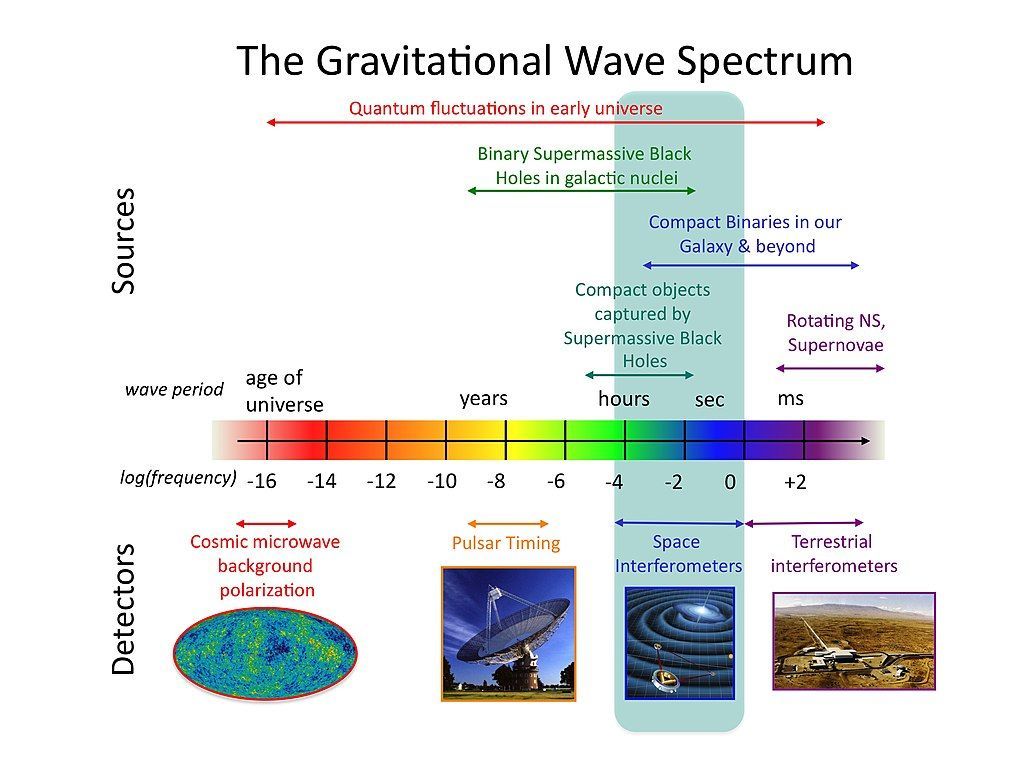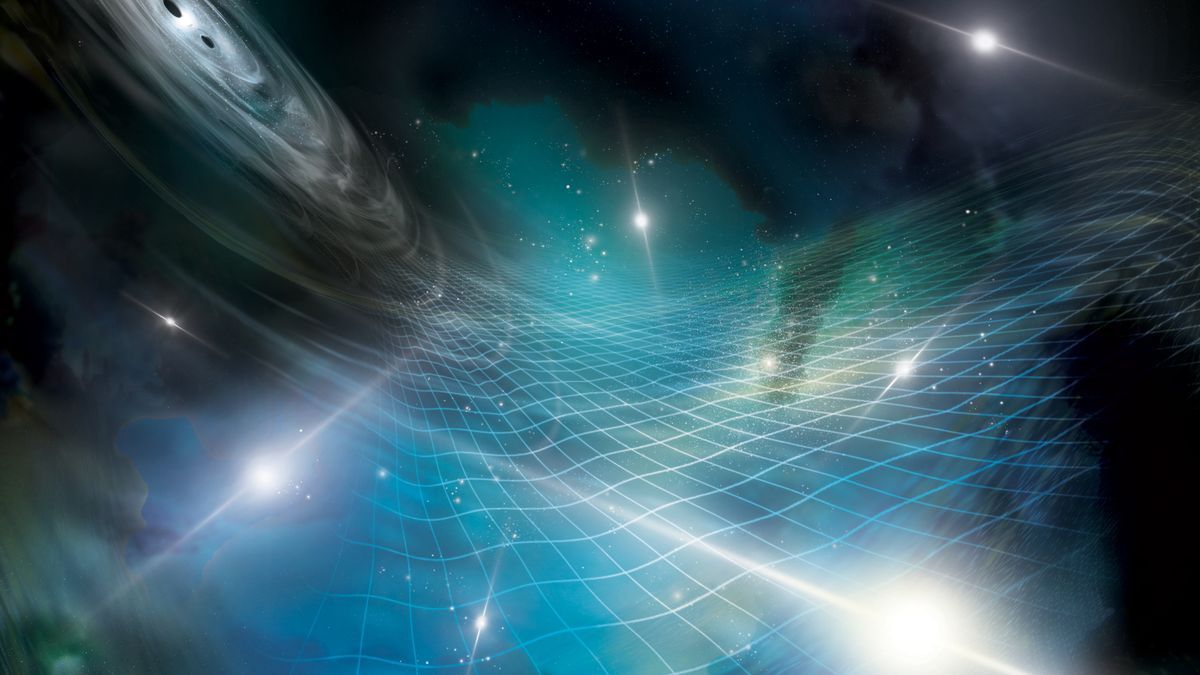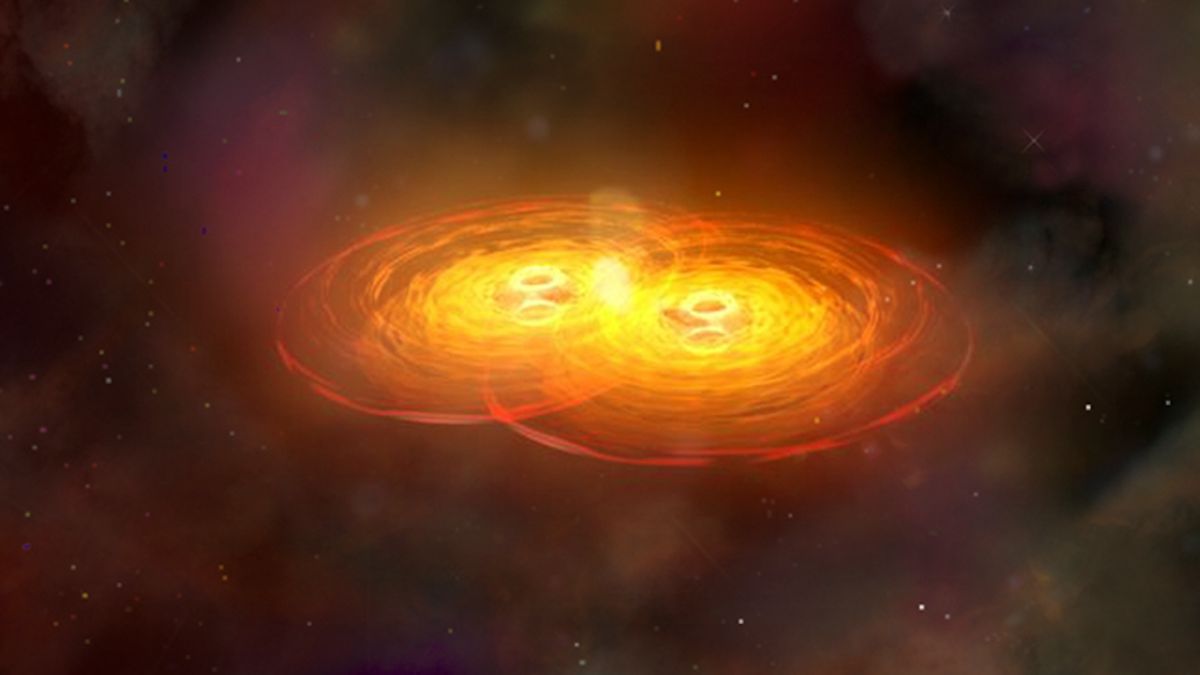In 2023, physicists were awed to find nearly imperceptible ripples in the fabric of space and time — united as an entity known as spacetime. They were ripples discovered in association with collections of rapidly spinning neutron stars called “pulsar timing arrays.”
This low-frequency background hum of gravitational waves in our universe was originally attributed to a change, or a “phase transition,” that occurred shortly after the Big Bang. New research, however, casts doubt on that assumption.
“Theorists and experimentalists have speculated nanohertz gravitational waves originated from a known transition that happened very soon after the Big Bang — a change that generated the masses of all the known fundamental particles,” Andrew Fowlie, an assistant professor at Xi’an Jiaotong-Liverpool University, said in a statement. “However, our work uncovers serious problems with that otherwise appealing explanation of their origin.”
Phase transitions are sudden changes in a substance’s properties, and they typically occur when a particular substance reaches a critical temperature. The phase transition perhaps most familiar to us is the transition of water into ice as temperatures fall below freezing. There are also what are known as “supercool” transitions. With water, a supercool transition occurs when the substance gets “stuck” in its liquid phase, slowing its transformation into ice.
Related: The 1st life in the universe could have formed seconds after the Big Bang
Many scientists believe a “first-order phase transition” occurred at the very beginning of time, triggering the launch of gravitational waves, or ripples in space-time. Those waves, experts think, could therefore be used to determine conditions present during the first epoch of rapid inflation in our universe, or maybe even the conditions present before the Big Bang.
Just a phase?
The concept of gravitational waves dates back to Albert Einstein’s 1915 theory of gravity called “general relativity.” The great physicist’s magnum opus theory predicts that objects with mass have a warping effect on the very fabric of spacetime . Our physical experience of gravity, the theory states, arises from this warping.
General relativity goes further than this as well, also suggesting that when objects accelerate, they generate ripples in spacetime — aka, gravitational waves. Though this phenomenon is negligible when it comes to the acceleration of objects on a scale we see on Earth, the effect becomes significant when the acceleration involves massive cosmic objects like supermassive black holes and neutron stars.
For instance, when these objects exist in binary systems — meaning two of them constantly accelerate around one another — they continuously emit gravitational waves until they finally collide and emit a high-pitched “screech” of these ripples.
Additionally, gravitational waves, like electromagnetic radiation, come in a range of frequencies. High-frequency gravitational waves, like high-frequency light, have shorter wavelengths and are more energetic; low-frequency gravitational waves have longer wavelengths and are less energetic. Low-frequency longwave gravitational waves also have long “periods,” which refers to the time between one peak of the wave passing a set point to the next peak passing that point.

The gravitational waves detected by the North American Nanohertz Observatory for Gravitational Waves (NANOGrav) pulsar timing array in June 2023 are lower in frequency than the gravitational waves seen coming from supermassive black hole and neutron star mergers routinely detected by the Laser Interferometer Gravitational-Wave Observatory (LIGO), VIRGO,and KAGRA.
This means there must be a different source for these low-frequency nanohertz gravitational waves. The prime suspect? A phase transition just after the Big Bang — a supercool one, to be exact.
“We found that to have created waves with such tiny frequencies, the transition would have to be supercool,” Fowlie explained.
However, there is a problem. Such cosmic supercool transition phases would be a bit unexpected during the period of rapid cosmic inflation (in other words, the universe’s expansion) triggered by the Big Bang.
“These slow transitions would struggle to finish, as the transition rate is slower than the cosmic expansion rate of the universe,” Fowlie said. “What if the transition sped up at the end? We calculated that even if this helped the transition to end, it would shift the frequency of the waves away from nanohertz.”
The researcher also added that, although nanohertz gravitational waves are cool, they are probably not “supercool” in origin.
“If these gravitational waves do come from first-order phase transitions, we now know that there must be some new, much richer physics going on — physics we don’t know about yet,” Fowlie said.

Fowlie and colleagues believe their research demonstrates that more care is needed to understand supercool phase transitions, especially those that could have occurred at the beginning of the universe.
“Because these are necessarily slow transitions, the usual simplifications of whether transitions complete or not won’t work,” he said. “There are a lot of subtleties in the connections between the energy scale of the transitions and the frequency of the waves, so we need more careful and sophisticated techniques when considering gravitational waves and supercool transitions.
“Understanding this field will help us understand the most fundamental questions about the origin of the universe.”
A better comprehension of supercool phase transitions could also help understand more Earthly and less cosmic phase transitions.
“It also has links to applications that are closer to home, such as understanding how water flows through a rock, the best ways to percolate coffee, and how wildfires spread,” Fowlie concluded.
The team’s research is discussed in a paper published in the journal Physical Review Letters.
Originally posted on Space.com.

